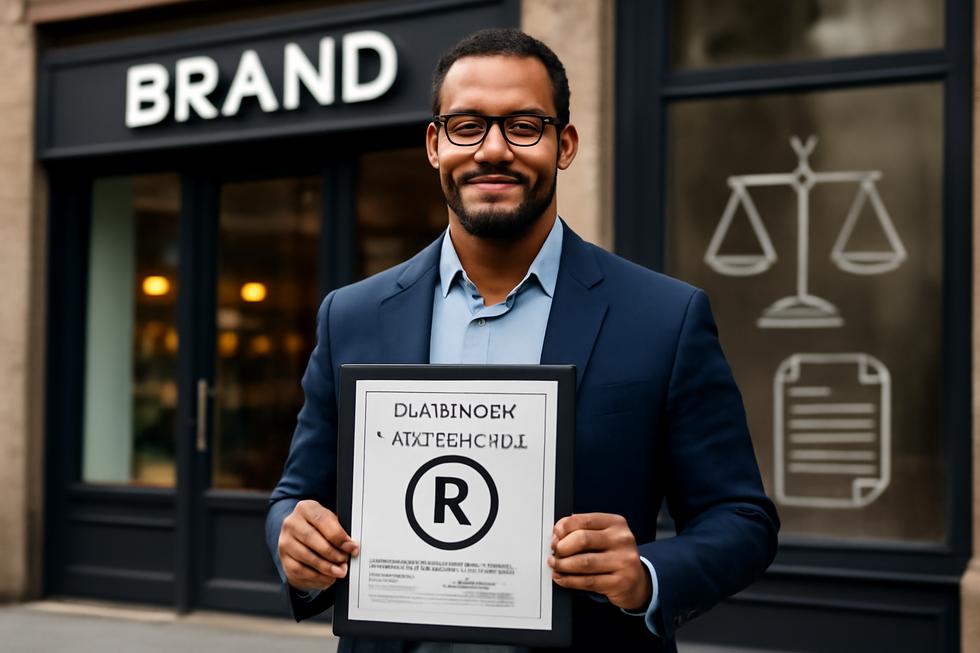Introduction
Protecting your business’s unique phrases and slogans is crucial for maintaining brand identity and market edge. However, many business owners mistakenly believe that copyright law can shield their catchy taglines. The reality is different: copyright law expressly excludes short phrases and slogans from protection due to their lack of originality and creativity. Instead, trademark law offers a powerful tool to secure exclusive rights to these vital branding elements. This guide unpacks why copyright doesn’t cover phrases and slogans, explains the importance of trademark protection, explores key legal doctrines that affect eligibility, details the trademark registration process, and highlights the fundamental differences between copyright and trademark. By understanding these distinctions, business owners can take informed steps to legally protect their brand’s most recognizable phrases.
Tables of Contents
Chapter 1: Understanding Copyright Limitations for Copyright a Phrase or Slogan
- Why Copyright Law Falls Short in Protecting Phrases and Slogans
- Why Trademark Registration Is the Essential Route for Protecting Phrases and Slogans
Chapter 2: Why Trademark Law is Essential for Copyright a Phrase or Slogan Protection
- Clarifying Intellectual Property: How Trademark Law Safeguards Phrases and Slogans Beyond Copyright
- The Commercial Power of Trademark Protection: Securing Brand Identity and Market Advantage for Phrases and Slogans
Chapter 3: Legal Doctrines Affecting Copyright a Phrase or Slogan Eligibility
- How the Merger Doctrine and Fair Use Shape Copyright Eligibility for Phrases and Slogans
- Why Trademark Law, Not Copyright, Protects Your Phrase or Slogan
Chapter 4: The Trademark Registration Process for Copyright a Phrase or Slogan
- Navigating the Legal Landscape: How Trademark Registration Protects Your Phrase or Slogan
- A Comprehensive Guide to Registering Your Phrase or Slogan as a Trademark
Chapter 5: Key Differences Between Copyright and Trademark in Copyright a Phrase or Slogan
- How Trademark Protects Phrases and Slogans as Brand Identifiers
- Why Copyright Fails and Trademark Prevails: Protecting Phrases and Slogans Legally
Chapter 1: Understanding Copyright Limitations for Copyright a Phrase or Slogan
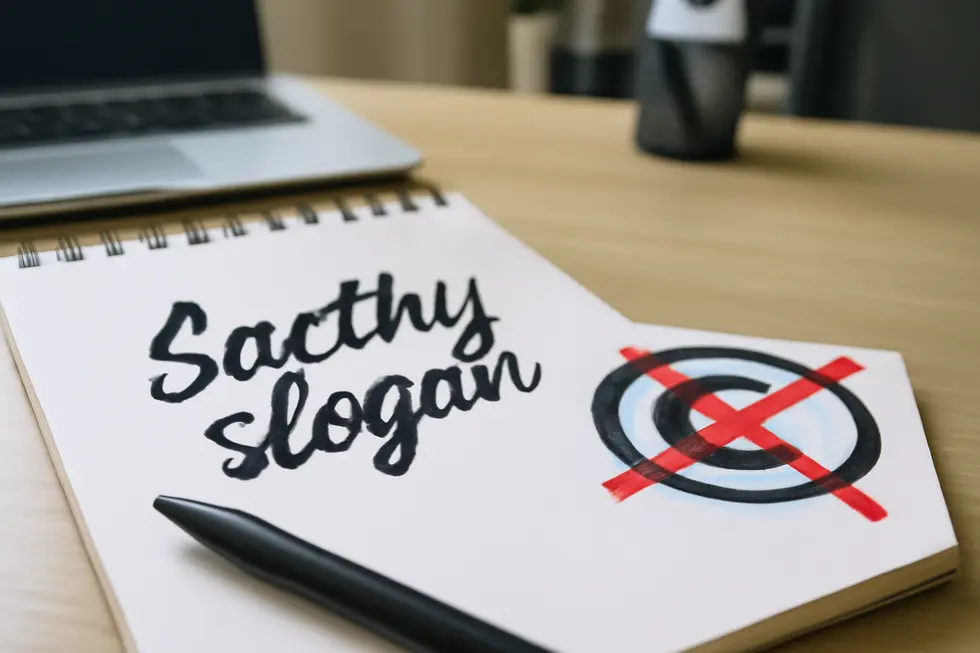
1. Why Copyright Law Falls Short in Protecting Phrases and Slogans
Copyright law explicitly excludes protection for phrases and slogans because they fail to meet the essential criteria of originality and creativity. Unlike substantial creative works such as books, music, or artwork, short phrases are viewed as minimal expressions. They often represent ideas or facts conveyed with the fewest possible words, and copyright doctrine does not extend to these concise elements. A key principle reinforcing this is the merger doctrine, which prevents copyrighting expressions that are inseparable from the underlying idea. This ensures that fundamental ideas remain free for public use rather than locked behind legal barriers.
Words and slogans, by their nature, are typically too simple to qualify for copyright. Copyright protects original works fixed in a tangible medium, but short phrases, titles, names, and slogans generally do not rise to that level of authorship or creativity. They are often common sayings or factual statements, categorized more as ideas than creative expressions. As a result, copyright protection simply does not apply.
Instead, these phrases find legal shelter under trademark law, which safeguards distinct identifiers used in commerce. Trademark protection applies only if a phrase or slogan is distinctive and serves to identify and distinguish goods or services. This protection prevents competitors from confusing consumers about the origin of products but does not grant the broad exclusive rights that come with copyright.
Other copyright limitations include the exclusion of facts and ideas, the allowance of fair use for specific circumstances, and the ineligibility of government works and public domain materials. In sum, seeking copyright protection for a phrase or slogan is ineffective; trademark registration is the appropriate approach for safeguarding brand-related phrases.
For more detailed insights on protecting business identifiers, consider exploring trademark registration basics.
Source: https://trademark2go.com/can-you-copyright-a-phrase/
2. Why Trademark Registration Is the Essential Route for Protecting Phrases and Slogans
Short phrases and slogans fall outside the protective scope of copyright law because they lack the originality and creative expression required by copyright statutes. Copyright safeguards works like books, music, and art fixed in a tangible form, but brief expressions such as slogans are generally considered too minimal to qualify. Instead, trademark law provides the appropriate avenue to protect these essential business identifiers. Trademarks focus on distinguishing the source of goods or services in commerce, allowing phrases and slogans to serve as brand signatures that consumers recognize and trust.
To secure trademark protection for a phrase or slogan, it must demonstrate distinctiveness and be actively used in commerce. This means the phrase should uniquely identify a product or service rather than merely describe it. Once registered, trademarks grant the owner exclusive rights to use the phrase in relevant commercial contexts, preventing others from causing confusion by using similar marks. Unlike copyright, trademark rights can be maintained indefinitely through timely renewals, making them highly valuable for ongoing brand identification.
The trademark registration process involves submitting an application that proves the phrase’s use and uniqueness, which can take over a year and might require professional guidance. This process also establishes legal grounds to enforce rights against unauthorized use. Understanding this distinction clarifies why business owners must turn to trademark law rather than copyright when aiming to protect their slogans or catchphrases. Navigating the complexities of trademark applications and enforcement typically benefits from consultation with an intellectual property professional. For those considering this path, resources such as comprehensive trademark guidance offer valuable insights to begin this critical step in brand protection.
Chapter 2: Why Trademark Law is Essential for Copyright a Phrase or Slogan Protection
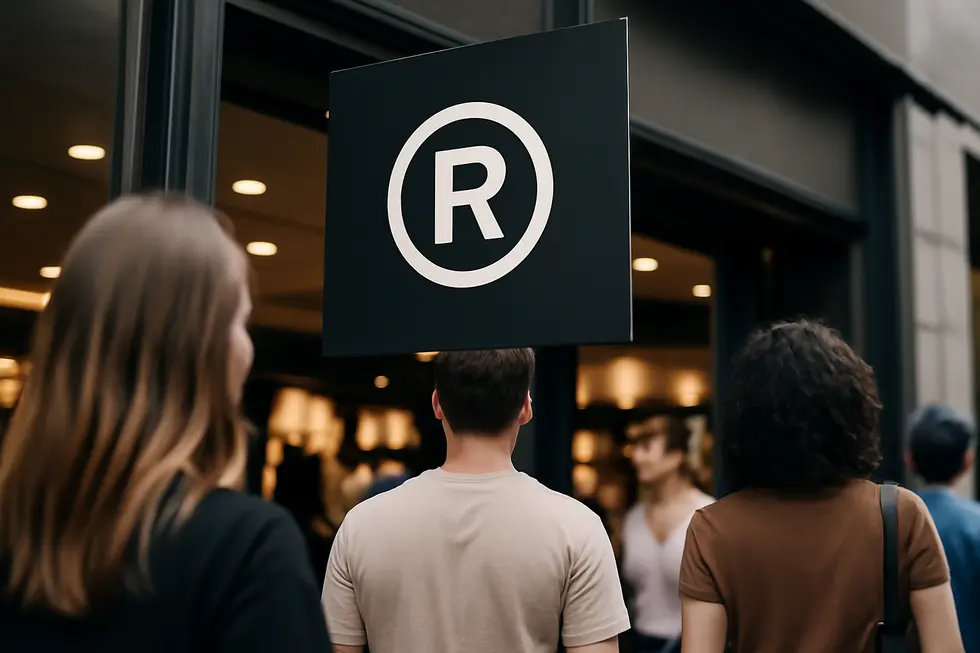
1. Clarifying Intellectual Property: How Trademark Law Safeguards Phrases and Slogans Beyond Copyright
Trademark law plays a crucial role in protecting phrases and slogans because copyright law explicitly excludes them. Copyright safeguards original creative works fixed in tangible mediums like books, music, or art, but it does not extend to short phrases, names, or slogans. These elements are considered too brief and lack the necessary creativity to qualify as copyrightable content. Instead, phrases and slogans earn legal protection under trademark law when they act as distinctive identifiers of commercial source, helping consumers recognize the origin of goods or services.
The legal distinction between copyright and trademark centers on their purpose and scope. Copyright focuses on protecting the expression of ideas in original works, granting rights for reproduction and public distribution. In contrast, trademark law is designed to protect brand identity by preventing consumer confusion and granting exclusive usage rights for words, phrases, or logos that serve as identifiers within commerce. For example, a slogan consistently used to promote a product can develop a “secondary meaning”—a unique association between the phrase and the source—which qualifies it for trademark protection.
Unlike copyright, trademark protection can last indefinitely as long as the mark is actively used and properly renewed. This ongoing protection is vital for businesses seeking to preserve brand recognition over time. To secure a trademark for a phrase or slogan, distinctiveness and active commercial use must be demonstrated during the registration process. Once granted, trademark owners can prevent competitors from using confusingly similar phrases in related markets, reinforcing the phrase’s value as an asset.
For a deeper understanding of trademark protection for slogans and sayings, see Trademark2Go’s resource on trademark law.
This clear legal distinction emphasizes why relying on copyright law alone is insufficient for protecting phrases or slogans, underscoring trademark law as the essential tool for securing these elements of branding.
2. The Commercial Power of Trademark Protection: Securing Brand Identity and Market Advantage for Phrases and Slogans
Trademark law plays a critical role in safeguarding phrases and slogans that form the backbone of a business’s brand identity. Unlike copyright, which does not cover short expressions, trademark protection grants exclusive rights to distinctive phrases used in commerce. This exclusivity ensures that consumers can reliably associate specific slogans with a particular company or product, building trust and loyalty over time.
From a commercial standpoint, a registered trademark empowers businesses to prevent competitors from adopting confusingly similar slogans, thereby reducing the risk of brand dilution or consumer confusion. The ability to legally exclude others from using a protected phrase enhances a company’s competitive edge and reinforces its market presence. As brands increasingly rely on memorable slogans to convey their values and distinguish their offerings, trademark protection becomes indispensable for maintaining these valuable assets.
Economically, trademarks constitute intangible property that significantly contributes to a company’s valuation. Registered slogans can be licensed, creating additional revenue streams, or leveraged as collateral in financing arrangements. This flexibility facilitates strategic growth, expansion, and international market entry by providing a clear legal framework to address infringement risks.
Moreover, trademark registration signals ownership and exclusive rights to the public, typically protecting phrases for ten years with the option to renew indefinitely. This long-term protection supports consistent marketing efforts and brand messaging, which are vital for sustained business success.
In essence, trademark law transforms simple phrases and slogans from mere expressions into powerful commercial tools, safeguarding investments and fostering distinctive, enduring brand identity. For guidance on securing such protection, exploring resources on when you may need a trademark for your business can provide practical insights.
Chapter 3: Legal Doctrines Affecting Copyright a Phrase or Slogan Eligibility
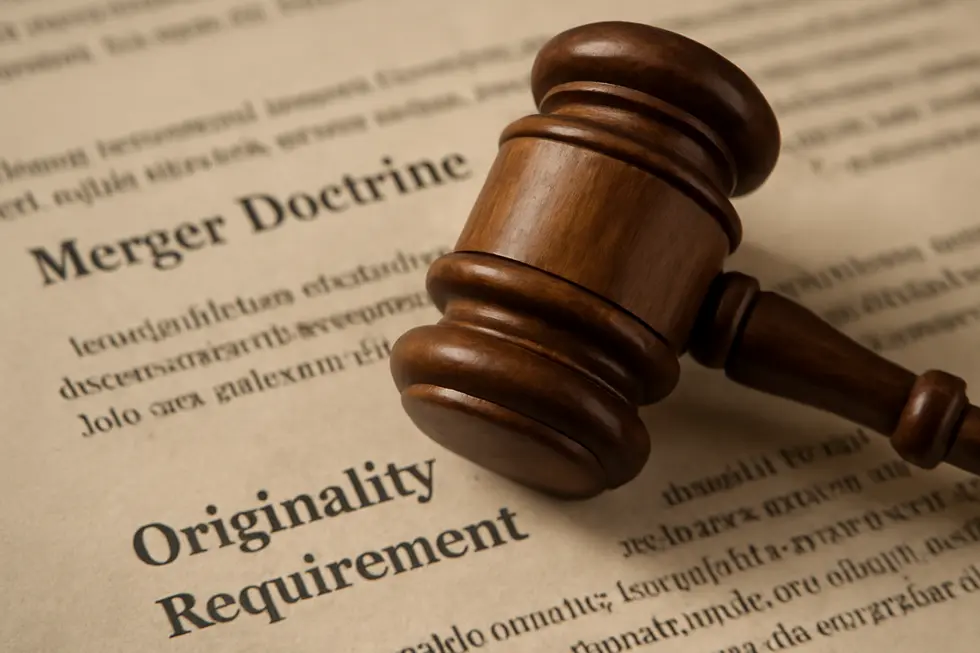
1. How the Merger Doctrine and Fair Use Shape Copyright Eligibility for Phrases and Slogans
Copyright law aims to protect original creative expression, but short phrases and slogans typically fall outside its scope. Central to this limitation is the merger doctrine, which prevents copyright protection when an idea and its expression are inseparable. Since many phrases and slogans serve as the clearest or only way to communicate particular ideas or concepts, granting exclusive rights would effectively monopolize an idea, contrary to copyright’s purpose. For example, a concise slogan summarizing a product’s quality or unique feature often leaves little room for alternative expressions, thereby merging idea and expression.
Consequently, these short expressions do not meet the originality threshold required for copyright, as their form is dictated by the underlying idea rather than creative uniqueness. The merger doctrine ensures that such fundamental communicative tools remain free for public use, preserving the balance between protecting creators and avoiding monopolies over basic ideas.
Fair use, another pivotal copyright principle, allows limited unauthorized use of copyrighted works for purposes like criticism or parody. However, because phrases and slogans rarely receive copyright protection in the first place, fair use does not commonly apply to them. Without exclusive rights to infringe upon, fair use provisions have little relevance in this context.
This legal framework clarifies why copyright is not the correct means for protecting phrases or slogans. Instead, safeguarding these branding elements requires a different legal approach, as explored in the following section.
For a more detailed discussion on how the merger doctrine restricts copyright claims on phrases and slogans, see the analysis by Kelley Way Law here.
2. Why Trademark Law, Not Copyright, Protects Your Phrase or Slogan
Copyright law explicitly excludes short phrases and slogans from protection because they lack the originality and creativity required for copyright eligibility. These brief expressions are viewed as too simple to qualify as original creative works fixed in a tangible medium, such as books or artworks. This exclusion arises partly from the merger doctrine, which prevents copyright claims on phrases that are the most natural way to express an idea. Consequently, phrases and slogans do not fall within the scope of copyright protection.
Instead, trademark law is the principal legal framework safeguarding phrases and slogans when they serve as distinctive brand identifiers. Trademarks protect words, phrases, logos, or symbols that uniquely distinguish the commercial source of goods or services. A phrase or slogan can gain trademark protection if it functions as an exclusive indication of origin, helping consumers identify and distinguish one brand from another. This distinctiveness often emerges through consistent commercial use, where a phrase acquires “secondary meaning” by becoming strongly associated with a specific brand rather than its literal or common meaning.
Trademark rights can be established either by actual use in commerce (common law rights) or through formal registration with the United States Patent and Trademark Office (USPTO). Registration provides legal presumptions of ownership and enhances enforcement capabilities against infringement. Unlike copyright protection, trademark protection can last indefinitely, provided the trademark remains in use and the owner fulfills renewal requirements.
Understanding this distinction is crucial for businesses seeking to protect their slogans. Because copyright does not extend to short phrases, pursuing trademark registration is the recommended path to secure exclusive rights and prevent others from using confusingly similar branding elements. For a detailed overview of securing trademark rights for business brands, resources such as Trademark2Go offer practical guidance.
Chapter 4: The Trademark Registration Process for Copyright a Phrase or Slogan
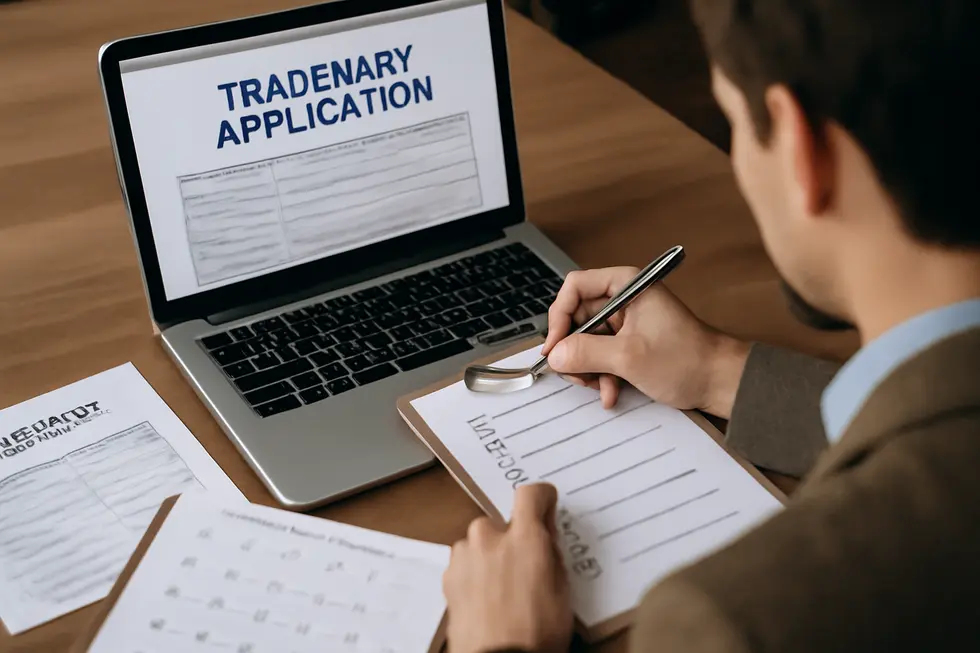
1. Navigating the Legal Landscape: How Trademark Registration Protects Your Phrase or Slogan
When seeking to protect a phrase or slogan, it’s crucial to understand that copyright law does not provide coverage for short phrases, names, or slogans. Instead, protection arises through trademark registration, which secures exclusive rights for distinctive brand identifiers that distinguish goods or services in the marketplace. This legal framework is primarily governed by the Lanham Act in the United States, which sets clear standards for what qualifies as a registerable trademark. To successfully register a phrase or slogan, it must be distinctive and function as a source identifier—not merely descriptive or generic terms without acquired distinctiveness.
The trademark registration process begins with a clearance search to ensure no existing marks conflict with your phrase. Filing an application with the United States Patent and Trademark Office (USPTO) follows, demonstrating actual use or intent to use the phrase in commerce. The USPTO review typically spans 6 to 9 months, during which the trademark is examined for compliance with legal requirements. If your application passes scrutiny and faces no oppositions, the registration grants you nationwide exclusive rights, enabling you to enforce your trademark against unauthorized use through federal courts. The ® symbol may then be appended to the phrase or slogan, signaling federal registration and ownership.
Additionally, if third parties oppose the registration during public notice periods, administrative hearings before the Trademark Trial and Appeal Board (TTAB) can occur before final approval. This thorough legal system balances protecting unique branding elements while preventing monopolization of common language. Trademark protection can last indefinitely, provided the mark is actively used and properly maintained through periodic renewals, unlike copyright which automatically covers creative works but excludes short phrases. This pathway is essential for businesses aiming to secure lasting identity and market presence through their slogans. For comprehensive guidance on trademark registration and its distinction from copyright, visit Trademark2Go’s guide on copyright and slogans.
2. A Comprehensive Guide to Registering Your Phrase or Slogan as a Trademark
Registering a phrase or slogan as a trademark involves a precise, multi-step process rooted in trademark law, which offers protection where copyright does not. The journey begins with conducting a thorough trademark search to verify that the phrase is both unique and not already claimed by others. This essential first step helps prevent potential refusals and legal disputes. To qualify, the phrase must be distinctive and function primarily as a brand identifier, rather than being generic or merely descriptive.
Once eligibility is confirmed, preparing the trademark application requires careful choices. You must define the trademark format—typically standard characters for phrases—and select an appropriate filing basis, whether the phrase is already in commercial use or intended for future use. Crucial to this phase is identifying the correct trademark class or classes that correspond to the goods or services your phrase will represent, as classification ensures the scope of protection is clear. If already in use, submitting a specimen illustrating the phrase’s use in commerce (such as labels or advertisements) is mandatory.
After completing the application and paying the filing fee, which usually ranges from $250 to $350 per class, the application undergoes rigorous examination by a trademark attorney who checks for compliance, distinctiveness, and conflicts with existing trademarks. Should issues arise, applicants receive an office action requiring responses or amendments. When approved, the phrase is published publicly, inviting third parties to contest the registration if they believe it infringes upon their rights.
If no opposition stands or is resolved favorably, the trademark registration is granted, typically valid for ten years with indefinite renewals available. Maintaining the trademark through consistent use in commerce and required renewals is vital for ongoing protection. This process, which often spans 6 months to 2 years, demands diligence and attention to detail but ultimately secures exclusive rights to your phrase as a brand asset.
For a detailed and accessible overview of trademark registration steps, resources like Trademark2Go provide comprehensive guidance tailored to various needs.
Chapter 5: Key Differences Between Copyright and Trademark in Copyright a Phrase or Slogan
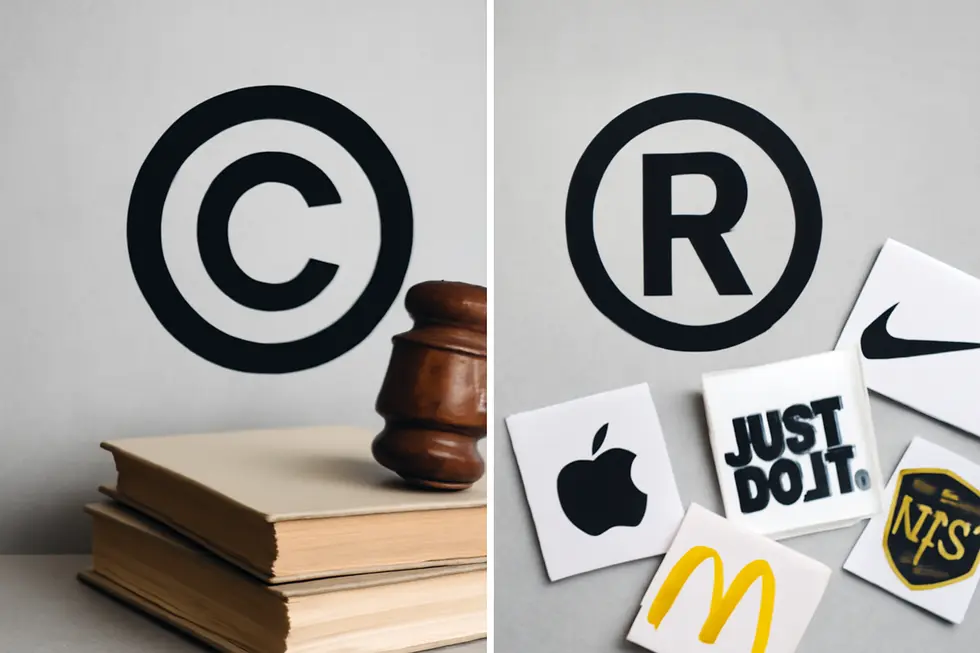
1. How Trademark Protects Phrases and Slogans as Brand Identifiers
Trademark protection plays a crucial role in safeguarding phrases and slogans as essential elements of brand identity. Unlike copyright, which extends only to original creative works fixed in tangible form, trademark law focuses on identifiers such as words, phrases, slogans, logos, and designs that distinguish the source of goods or services in the market. This distinction explains why phrases and slogans cannot be copyrighted: copyright law specifically excludes short expressions like these because they lack sufficient originality and creativity to qualify as protected works.
Instead, slogans function as trademarks when they serve to signal origin and build consumer recognition. For instance, a catchy phrase used consistently to represent a product or service can be registered and protected as a trademark under federal law. This registration grants exclusive rights to use the slogan in connection with particular categories of goods or services, effectively preventing competitors from adopting confusingly similar phrases in the same market segment.
Trademark protection can endure indefinitely, provided the trademark owner maintains the mark through continuous use and timely renewals, a stark contrast to the fixed duration of copyright. Importantly, trademark rights are limited in scope, protecting only the specified commercial categories, which means identical phrases may be lawfully used in unrelated industries without infringement.
This framework makes trademark law the appropriate avenue for securing legal rights over phrases or slogans that constitute key branding assets. A well-known slogan’s ability to identify and distinguish a brand exemplifies this protection, demonstrating why trademark registration is vital for businesses seeking exclusive use of their slogans.
For those exploring how to protect business identifiers, resources such as trademark registration guidance offer valuable insights. Additionally, the UpCounsel article on patent, trademark, and copyright differences provides an informative overview of why trademark, not copyright, governs phrase and slogan protection.
2. Why Copyright Fails and Trademark Prevails: Protecting Phrases and Slogans Legally
Why Copyright Fails and Trademark Prevails: Protecting Phrases and Slogans Legally
Copyright law is designed to guard original works of creative expression fixed in tangible form, such as books, music, or artwork. However, its scope fundamentally excludes short phrases and slogans because these are generally too brief and common to meet the required threshold of originality. While a novel or a song contains distinctive creative content, brief expressions like slogans lack the creative substance needed for copyright protection. Moreover, doctrines like the merger doctrine reinforce this exclusion by preventing copyright when a phrase is the only or the best way to convey an idea.
Conversely, trademark law fills this protection gap by safeguarding brand identifiers such as names, slogans, and logos used in commerce. Trademark protection hinges on a phrase’s distinctiveness and commercial use, allowing businesses to exclusively claim certain slogans to signal the origin of their goods or services. Unlike copyright, trademark can protect short phrases if they function as a source identifier rather than merely as expressive content.
This legal distinction carries important implications. Business owners seeking to protect a phrase or slogan must look beyond copyright and pursue trademark registration. Trademark rights require proof of continuous commercial use and distinctiveness but can last indefinitely with proper maintenance and renewal. In contrast, relying on copyright for brief phrases offers no legal recourse against competitors who might copy a slogan.
Ultimately, understanding that copyright does not shield short phrases clarifies why trademark is the primary tool for legal protection of slogans. This distinction helps shape effective strategies to protect brand identity in the marketplace.
For a deeper dive into trademark registration strategies, refer to Trademark2Go’s guide on trademarks for businesses.
For more legal insight on this topic, see Trademark2Go’s explanation about copyrighting phrases.
Final thoughts
Navigating the complex world of intellectual property protection for your business’s phrases and slogans demands clear understanding of legal boundaries. Copyright law explicitly excludes short expressions like slogans due to their lack of requisite originality and the merger doctrine. Instead, trademark law offers a robust framework to protect your branding, conferring exclusive commercial rights and long-term value to your distinctive phrases. By recognizing these important differences and engaging in the trademark registration process, business owners can secure their brand identity and prevent others from infringing on their reputation. Protecting your phrases and slogans isn’t just about legal compliance—it’s a strategic investment in your business’s future growth and customer loyalty.
Your IP is the foundation of your success – let’s protect it together before it’s too late. We can’t wait to help you turn your ideas into legally secured assets.
About us
undefined


